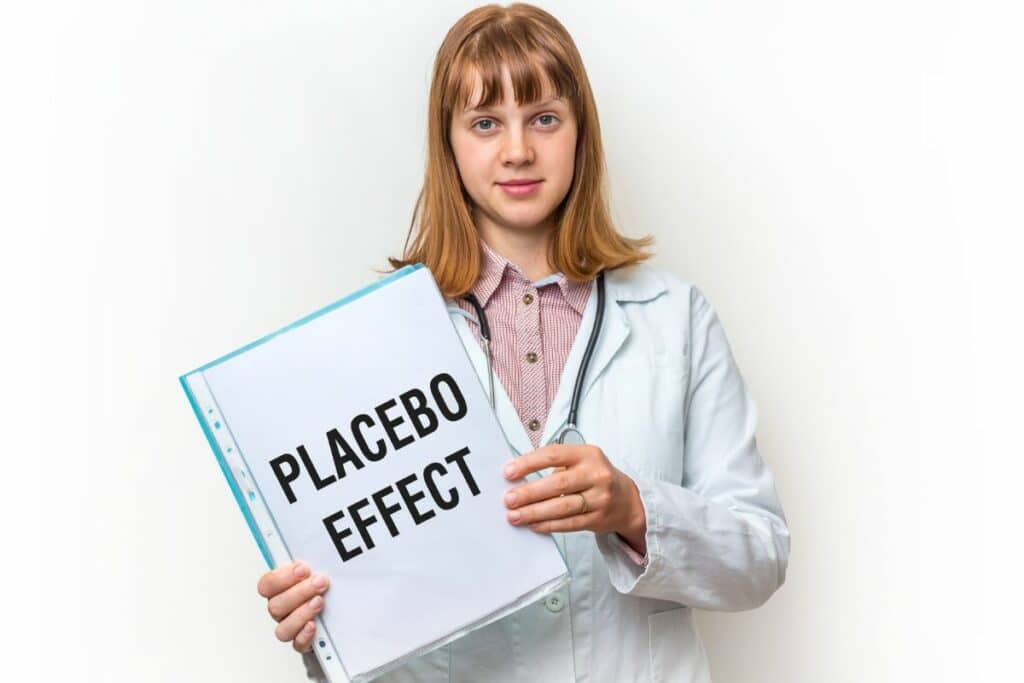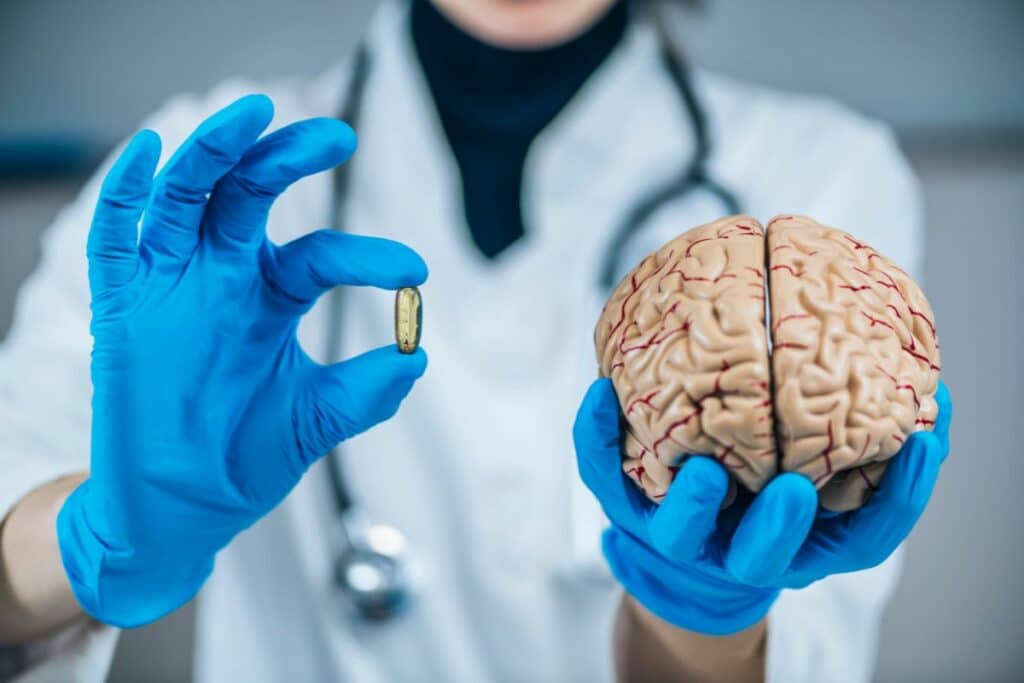Though the placebo effect is not yet fully understood, it’s clear that it can be a powerful tool for self-healing.
Have you ever asked, “Can I heal myself?” I certainly have. The thing is, when we think of the benefits associated with relieving physical and mental ailments, medical intervention may come to mind. But research has demonstrated that a powerful—and unexpected—tool could alter your symptoms dramatically: a placebo.
The term “placebo” comes from Latin and literally means, “I shall please.”
merriam-webster, 2022
Proponents argue that placebos can foster amazing results in improving one’s quality of life due to its remarkable ability to induce healing without any medicinal or therapeutic element present.
- Can I heal myself?
- What is a placebo?
- What is the placebo effect?
- How do placebos work?
- How can I use placebos to heal myself?
- Are placebos still used in clinical trials?
- What are the ethical implications of the placebo effect?
- What's the connection between spirituality and health?
- Simple steps to be a better YOU
Can I heal myself?
When it comes to healing, can we truly trust in our own abilities? According to an analysis of the placebo effect, the answer is a resounding yes! Many studies have suggested that how we perceive and react to certain treatments can lead to tangible physical changes within our bodies.
While scientific understanding of this phenomenon has yet to unlock its full potential, what can be said for sure is that the power of believing can be just as powerful as any physical treatment. In short, can we heal ourselves? The evidence says absolutely!
What is a placebo?
Placebos are medical treatments that contain no active drugs or medication.

What is the placebo effect?
The placebo effect is a well-documented phenomenon in which patients experience positive results from a ‘dummy medication’ or a treatment that is not actually active. The effect is most often seen in clinical trials, where patients receiving the placebo still report improvements in their condition.
How do placebos work?
While the mechanisms behind the placebo effect are not fully understood, it is clear that patients’ expectations and beliefs about their treatment play a role. In some cases, the mere act of receiving treatment can be enough to trigger the release of endorphins, the body’s natural pain-relieving chemicals. In other cases, patients may experience a reduction in symptoms due to the power of positive thinking. Whatever the mechanism, the placebo effect is a powerful demonstration of the mind-body connection.
When patients believe that they are receiving an effective treatment, their expectations can influence the way their body responds. In some cases, the placebo effect can even produce physical changes, such as increased blood flow or reduced inflammation.
In some cases, the placebo effect can even produce physical changes, such as increased blood flow or reduced inflammation.
While the placebo effect is often dismissed as a medical quirk, it can actually have a real and measurable impact on health.
In fact, harnessing the power of the placebo effect is one of the challenges facing researchers who are working to develop new treatments. Placebo effects have been observed in diverse medical contexts, from pain relief to the treatment of anxiety and depression.
According to research, the doctor-patient relationship including temperament and expectations contribute to the effectiveness of the placebo effect.
Corfmat et al., 2012
How can I use placebos to heal myself?
Placebos can be an excellent tool to heal ourselves both mentally and physically. By giving ourselves positive messages and affirmations, we can trick our brains into believing that a remedy will work, without actually taking any medication or having any medical intervention.
In this way, we can create an expectation for something good to come from the placebo, leading our bodies to heal in the ways we desire. Additionally, visualizations, practicing mindfulness and self-compassion during placebo use can further amplify its effects on our wellbeing. Ultimately, by consciously employing placebos in healing routines, one can tap into powerful and effective tools for personal wellbeing.
Read also: 17 Reasons Why It’s Important To Change Your Mindset
Are placebos still used in clinical trials?
It has long been a matter of debate as to whether or not placebos should be used in clinical trials. The use of placebos has always been an important part of testing new treatments, enabling researchers to measure the effects and determine if a drug is really working.
Nowadays, placebos continue to be key components in most clinical trials and are used to provide an effective control for comparison. Although their role may be somewhat different from that of the past, the placebo effect is still an important factor for today’s clinical trials and ongoing research into finding new treatments and cures.
Check out my video below to learn more about how you can unleash your ability to self-heal.
What are the ethical implications of the placebo effect?
In the medical field, there is an ever-present discussion over the ethical implications of the placebo effect. What many consider to be an impressive demonstration of a person’s psychological reaction to treatment is seen by doctors and patients alike as an ethically precarious prospect.
Without full disclosure from the doctor of a treatment’s true effects, many see continued use of placebos as lying to the patient about a treatment’s efficacy. On the other hand, some doctors believe that shouldering part of a patient’s healing process on their psyche can actually induce genuine physiological responses in those who are prone to suggestion.
As this debate continues, it is important to remember that placebos are only indicative of what we can learn from our relationships with our bodies and minds over time, not necessarily able to override detrimentally larger terms conditions – even when they appear difficult to mend.
Read also: 10 Disadvantages of Spirituality You Shouldn’t Ignore

Final words on the power of the placebo effect
The placebo effect is a fascinating phenomenon with implications for both medicine and psychology. The fact that placebos can produce real, measurable effects highlights the importance of factors such as expectation, belief, and motivation in influencing our experience of pain and other physical symptoms.
While more research is needed to understand exactly how placebos work, it seems clear that our minds have a powerful impact on our bodies. Have you ever experienced the placebo effect? Let us know in the comments below!
Related topics
What’s the connection between spirituality and health?
The link between spirituality and health has been well established by science. Research suggests that spiritual practices such as meditation, prayer, and other forms of contemplation can help promote a healthy lifestyle.
People who focus on spirituality develop better resilience to stress and trauma, improved mental wellness, and enhanced physical health. Furthermore, those who connect with their spirituality are more conscious of their life choices, develop strong boundaries with the self and others, and take the necessary steps to improve or maintain personal wellbeing.
Spirituality not only benefits overall health but also provides guidance during challenging times to ensure individuals lead happier, healthier lives. Read more
Simple steps to be a better YOU
Everyone wants to see happiness in their lives, but making it happen doesn’t always come easy. Making improvements on oneself is essential if you want positive transformations and progress towards being a better person.
Whether it’s developing healthier habits or learning new skills; taking these small yet effective steps will ensure that you’re improving little by little every day. Read more
References
Corfmat J, Januel D, Braha S, Moulier V. L’effet placebo : généralités et spécificités en psychiatrie (dépression et schizophrénie) [The placebo effect: general information and specificities in psychiatry (depression and schizophrenia)]. Encephale. 2012 Feb;38(1):50-7. French.
Miller FG, Colloca L, Kaptchuk TJ. The placebo effect: illness and interpersonal healing. Perspect Biol Med. 2009 Autumn;52(4):518-39.









